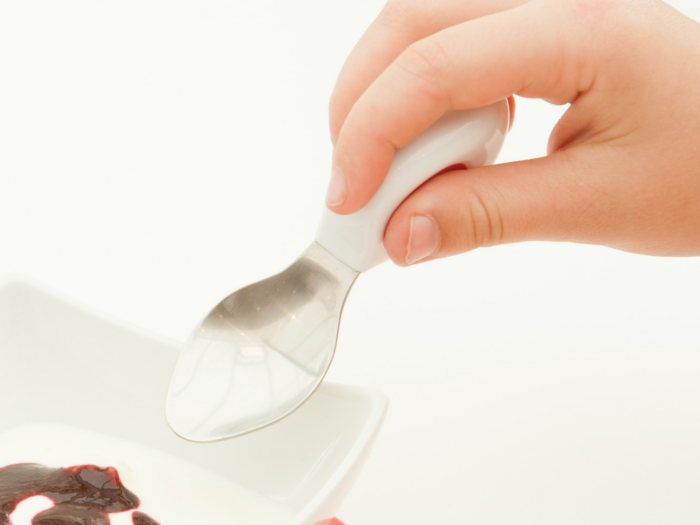by Christine Pollack, Paediatric Occupational Therapist
One of the first treasured memories from my daughter’s first few days of life was experiencing her tight grasp on my finger! The developmental progression of grasping and dexterity is a fascinating journey. Our babies go from involuntary automatic grasping to intentional or voluntary use of their hands as the months go by. Grasping skills are vital for future participation in every day tasks such as self-feeding, self-care, writing, coloring and manipulating classroom tools. How and when do grasping skills begin to develop? How little hands develop from palmar to pincer:Palmar reflex- birth to 3 months
Back to my treasured memory for a moment, my baby’s tight grip was actually something called the palmar reflex. Palmar reflex is an involuntary reflexive grasp that’s present at birth. It appears when placing an object in the palm of an infant causing the infant’s fingers to wrap around the object. The presence of this reflex indicates a typically developing nervous system. It typically fades by 3-4 months when a baby is able to voluntary open their hands to grasp objects. This sets the foundation for voluntary grasp and hand development.Ulnar palmar grasp- 3-4 months
As babies get more comfortable with opening and closing their hands or swiping at toys, you will observe them holding an object in their palm with the ring finger and pinky stabilizing.Palmar grasp- 4-6 months
In this stage the object is held in palm and secured by all fingers except the thumb. Babies in this stage will usually practice with small blocks, toys or balls.Radial palmar grasp- 6-9 months
At this point, a baby will use the thumb, the palm and all fingers to grasp an object. At this stage a baby may be practicing use of this grasp when introduced to finger foods.Raking grasp- 7-8 months
Close your eyes and picture a baby at this age reaching for a cheerio on their high chair with all fingers spread out, that’s the raking grasp. The baby reaches with the arm and all fingers to grasp an object.Radial digital grasp- 8-9 months
In this stage, the object no longer rests in the palm. The baby uses only the thumb, index & middle finger to grasp the object or toy.Pincer grasp 10-12 months
Picture a baby holding a cheerio between the tips of the thumb and index finger like they’re making the ‘ok’ sign, that’s pincer grasp!What happens after pincer grasp?

Once pincer grasp has emerged, a baby should be encouraged to continue practicing and refining their grasp through self-feeding and play.
In fact using ergonomically designed utensils and cutlery, like those by doddl, can help your child to foster independence in self-feeding while also building their grasping skills. The handles on their utensils are specifically designed to naturally encourage pincer grasp while providing grip zones to assist with finger placement and control. As a mom and therapist, finding a product that targets multiple skills simultaneously is like striking gold!
Now that you know what to look for, and how little hands develop from palmar to pincer grasp, it will be fun to take note of these observations while interacting with your little one!
Disclosure: This is a sponsored post on behalf of doddl. All content and opinions expressed in this post are based on my honest findings, beliefs, or experiences on those topics or products
References: Exner, C. E. (2010). Evaluation and Intervention to Develop Hand Skills. In Occupational therapy for children(6th ed., pp. 282–285). Maryland Heights, Mosby Elsevier.

Written by Christine Pollack, OTR/L
Christine Pollack graduated from New York University with a masters in Occupational Therapy. She is currently a mom and pediatric occupational therapist specializing in school-based therapy and early intervention in NYC. Follow her page: @a.dose.of.OT Content and references are for informational purposes only and are not intended to replace medical advice or occupational therapy intervention


